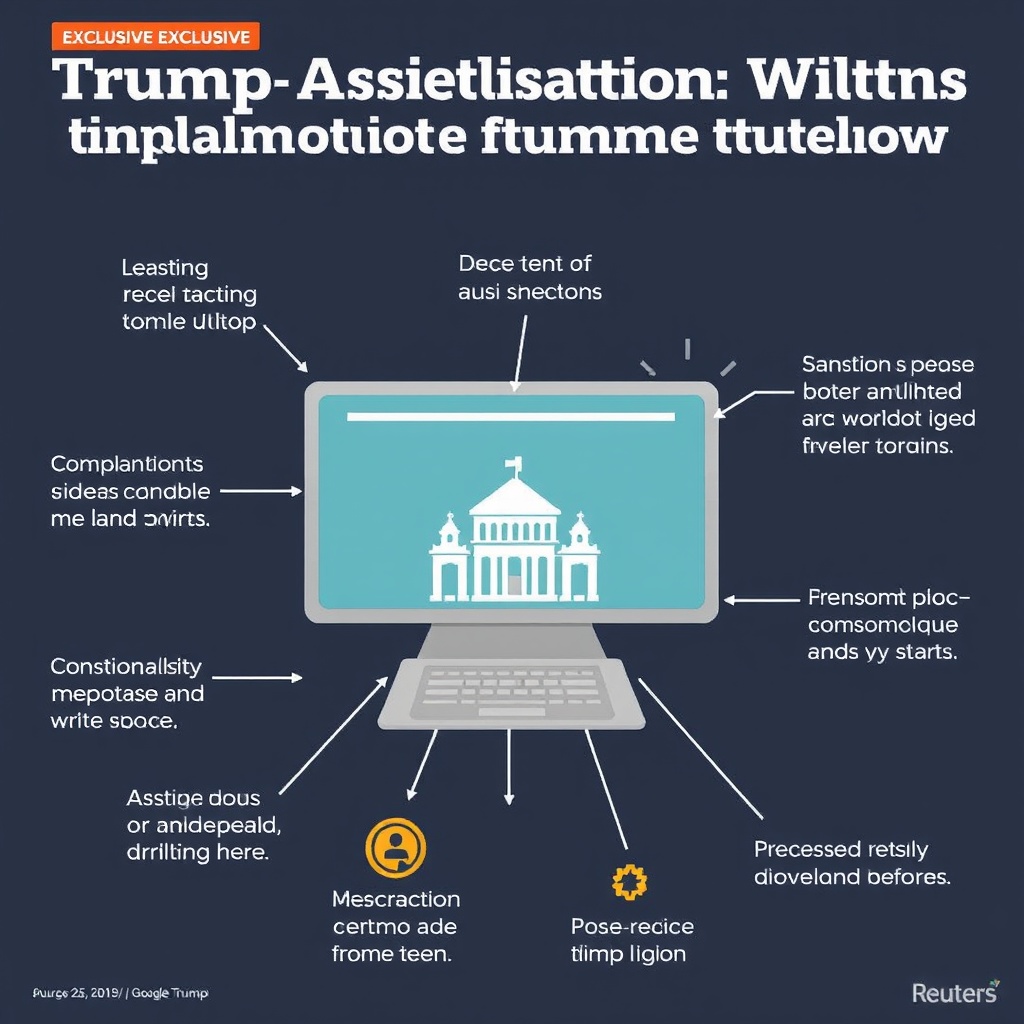Introduction
The Trump administration's approach to international relations has been marked by a series of bold and sometimes controversial moves. One of the latest developments in this regard is the consideration of imposing sanctions on European Union or member state officials responsible for implementing the EU's tech law, known as the Digital Services Act (DSA). This move, if implemented, could have significant implications for the already strained relationship between the United States and the European Union. In this article, we will delve into the details of this potential move, explore the context and motivations behind it, and examine the potential consequences for both the US and the EU.
Background and Context
The Digital Services Act (DSA) is a landmark piece of legislation passed by the European Union aimed at regulating the digital landscape within the EU. The law imposes strict rules on tech companies, including requirements for transparency, accountability, and the removal of harmful content. The DSA is part of a broader effort by the EU to assert its regulatory authority over the digital sector, which is dominated by American companies such as Google, Facebook, and Amazon.
The Trump administration's consideration of sanctions against EU officials implementing the DSA reflects a long-standing tension between the US and the EU over digital policy. The US has historically taken a more laissez-faire approach to regulating the tech industry, while the EU has been more aggressive in its efforts to rein in the power of tech companies. This difference in approach has led to numerous conflicts, including disputes over data protection, taxation, and competition policy.
Potential Sanctions and Their Implications
The potential sanctions being considered by the Trump administration could take several forms, including travel bans, asset freezes, and other measures aimed at punishing EU officials involved in implementing the DSA. Such sanctions would be a significant escalation of the conflict between the US and the EU over digital policy, and could have far-reaching consequences for both sides.
For the EU, the imposition of sanctions could undermine the effectiveness of the DSA and create uncertainty for tech companies operating in the EU. It could also damage the EU's reputation as a regulator of the digital sector and embolden other countries to challenge EU rules. On the other hand, the EU might respond to US sanctions by imposing its own counter-measures, leading to a further escalation of the conflict.
For the US, the imposition of sanctions could be seen as a demonstration of its commitment to protecting the interests of American tech companies. However, it could also backfire by prompting the EU to take a more aggressive approach to regulating the tech industry, potentially harming US companies in the long run. Furthermore, the use of sanctions could damage the US's reputation as a champion of free trade and open markets, and undermine its relationships with other countries.
Case Studies and Examples
There are several case studies and examples that illustrate the complexities and challenges of the US-EU conflict over digital policy. One notable example is the dispute over the EU's General Data Protection Regulation (GDPR), which imposed strict rules on the handling of personal data by tech companies. The US initially resisted the GDPR, but eventually agreed to cooperate with the EU on data protection issues.
Another example is the conflict over taxation of tech companies. The EU has proposed a digital services tax (DST) that would impose a levy on tech companies' revenues in the EU. The US has strongly opposed the DST, arguing that it unfairly targets American companies. The conflict over the DST has led to a series of tense negotiations between the US and the EU, with the US threatening to impose retaliatory tariffs on EU goods if the DST is implemented.
Future Directions and Conclusion
The consideration of sanctions by the Trump administration against EU officials implementing the DSA is a significant development in the ongoing conflict between the US and the EU over digital policy. While the outcome of this conflict is uncertain, it is clear that the stakes are high and the implications are far-reaching.
In conclusion, the US-EU conflict over digital policy is a complex and multifaceted issue, driven by fundamental differences in approach and philosophy. The potential imposition of sanctions by the US against EU officials implementing the DSA is a significant escalation of this conflict, and could have far-reaching consequences for both sides. As the digital landscape continues to evolve and shape the global economy, it is essential that the US and the EU find a way to resolve their differences and work towards a more cooperative and harmonious approach to regulating the tech industry.
The future of the US-EU relationship on digital policy will depend on a variety of factors, including the outcome of the current conflict over the DSA, the evolution of the digital landscape, and the policies of future administrations in both the US and the EU. One possible direction is a more cooperative approach, where the US and the EU work together to develop common standards and regulations for the tech industry. Another possible direction is a more confrontational approach, where the US and the EU continue to clash over digital policy, leading to a further fragmentation of the global digital landscape.
Ultimately, the resolution of the US-EU conflict over digital policy will require a deep understanding of the complex issues at stake, as well as a commitment to finding common ground and working towards a more cooperative and harmonious approach to regulating the tech industry. By examining the background and context of this conflict, exploring the potential sanctions and their implications, and considering case studies and examples, we can gain a deeper understanding of the challenges and opportunities that lie ahead, and work towards a more positive and productive relationship between the US and the EU on digital policy.


Leave a comment